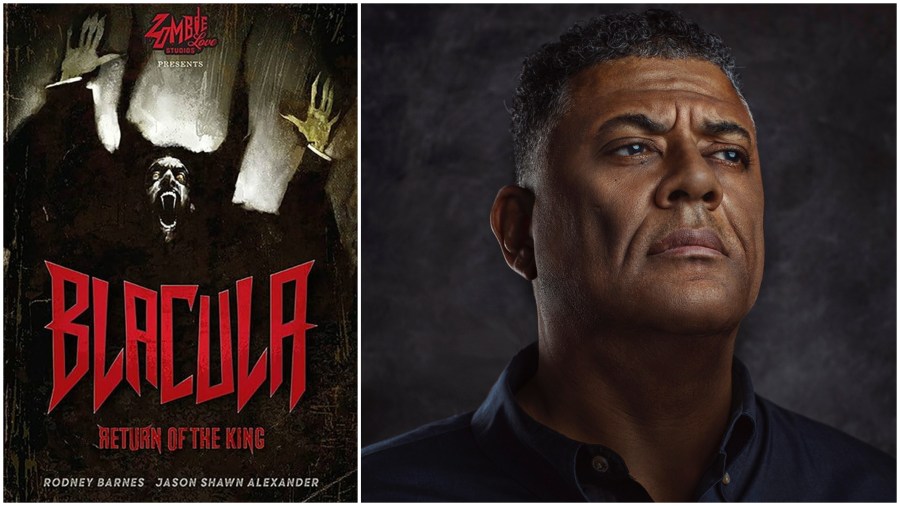Rodney Barnes couldn’t even read when he fell in love with the art of storytelling.
As a small child, he would accompany his mother, a teacher, to the library as she made her lesson plans. There, he would sit in the children’s book section in front of a box of comic books.
He couldn’t have been older than 5 years old and did not yet know how to read, but through the power of graphic storytelling, he could figure out what was happening in a book’s plot. It was then Barnes fell in love with the art.

“[The books were] different than Curious George and Dr. Seuss,” Barnes told theGrio. “It just felt like there were stakes in the stories. They felt important, and as I got older, the world of comic books changed from being kiddy, funny books … into more layered storytelling.”
His passion for storytelling only grew throughout his life. Whether it was a comic book, a television show, a novel, or a movie, Barnes loved all stories. He took that love and passion for storytelling and turned it into a career that has spanned over 20 years and shows no sign of slowing.
The award-winning screenwriter has worked on shows that have become staples in Black households, from early-aughts hits such as Aaron McGruder’s “The Boondocks” and Chris Rock’s “Everybody Hates Chris,” to more recent series, such as Hulu’s “Wu-Tang: An American Saga.” Aside from screenwriting, Barnes has written and contributed to several graphic novels.
Building on that early affinity, Barnes launched his very own graphic novel production studio, Zombie Love Studios, with a sequel to the legendary film “Blacula,” titled “Blacula: Return of the King.” A longtime fan of horror movies, the original 1972 film stuck with Barnes because it was the first time he had experienced that genre with Black characters integral to the storyline and in an audience of Black people. Just a kid at the time, he recalls thinking it would be great to have more experiences similar to that, told through the lens of more authentic Black stories. Now, he creates them.
Fans of “Blacula” can expect a character with the same gravitas as the late actor William Marshall, who originally embodied the titular character but with more elegance than Dracula. In the graphic novel, Barnes depicts him as a thoughtful character who is both a predator and an anti-hero. Here, Blacula is a being still deeply connected to his original narrative but also trying to find his place in a new world. Barnes wants readers to leave the novel with the notion that there may be monsters in the shadows — but that doesn’t have to be a bad thing.
“Being in a position where I do write stories for a living and I do have more control over the narrative [and] having the opportunity to tell the story again, I can take out some of the parts of blaxploitation that were problematic, and bring Blacula into the 21st century,” he said.
10 horror movies to watch this fall
Kayla Grant is a multimedia journalist with bylines in Business Insider, Shondaland, Oz Magazine, Prism, Rolling Out and more. She writes about culture, books and entertainment news. Follow her on Twitter: @TheKaylaGrant
TheGrio is FREE on your TV via Apple TV, Amazon Fire, Roku, and Android TV. TheGrio’s Black Podcast Network is free too. Download theGrio mobile apps today! Listen to ‘Writing Black‘ with Maiysha Kai.

